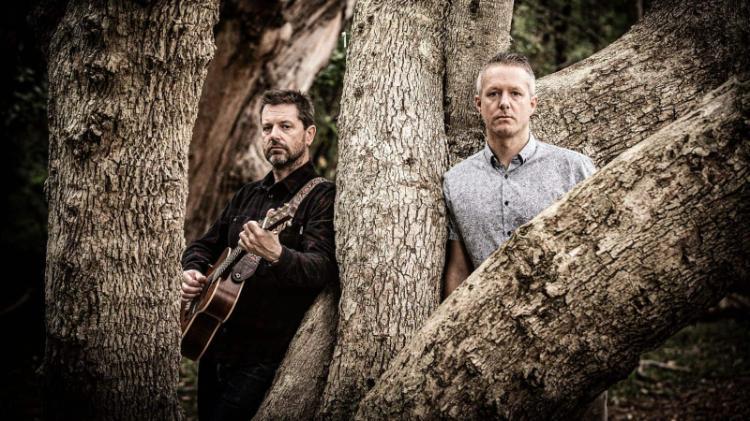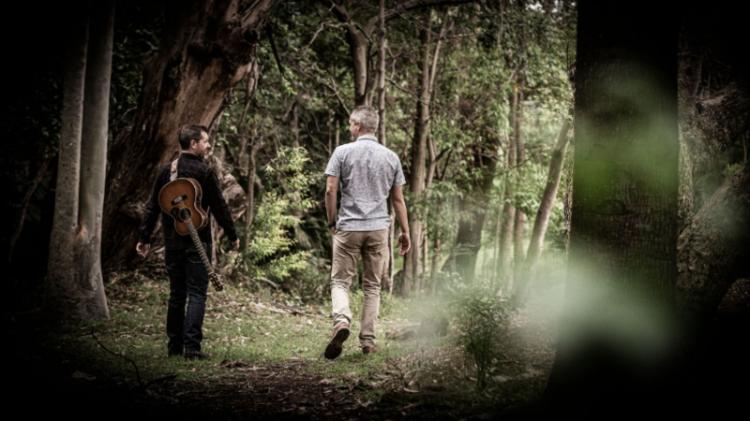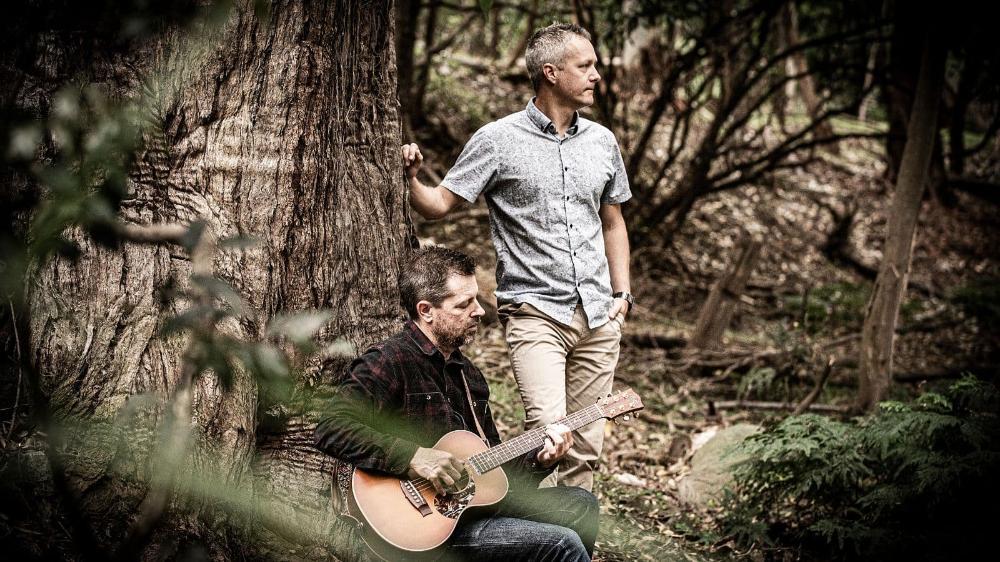September 13, 2023
UOW researchers win prestigious Woody Guthrie Award for their book on the guitar
Professor Chris Gibson and Dr Andrew Warren praised for their book tracing the production of guitars
A book by University of Wollongong (UOW) researchers that traces the production of guitar timbers back to the tree has won the International Association for the Study of Popular Music-US Branch (IASPM-US) Woody Guthrie Prize for most outstanding book on popular music.
The award is named in honour of one of the most influential American folk singers, who inspired generations of musicians and activists with songs such as ‘This Land is Your Land’.
The Guitar: Tracing the Grain Back to the Tree (University of Chicago Press, 2021) was written by UOW geographers Professor Chris Gibson and Dr Andrew Warren.
The book follows the authors as they explore guitar factories, port cities, log booms, remote sawmills, Indigenous lands, and distant rainforests, on a quest for behind-the-scenes stories and insights into how guitars are made, where the much cherished guitar timbers ultimately come from, and the people and skills that craft those timbers along the way.
The IASPM-US Awards Committee praised Professor Gibson and Dr Warren for their detailed, generous and humane examination of the many people from across the world who contribute to an art form and its cultures.
“Beautifully researched and written, The Guitar, reminded some of our committee of Howard Becker’s celebrated study, Art Worlds, which also takes a holistic approach to the creation and perpetuation of artmaking,” the Award Committee said.
“As a group we were all deeply impressed by their lively, engaging and enthusiastic approach to their subject.”

The book's authors Professor Chris Gibson and Dr Andrew Warren. Photo: Paul Jones
Professor Gibson and Dr Warren, from the School of Geography and Sustainable Communities, said they were honoured to receive such a prestigious award.
“Learning we’d been awarded the Woody Guthrie Prize was an honour,” Professor Gibson said. “We spent six years researching and writing this book to shine a spotlight on the often overlooked workers and trees behind guitars. To be recognised with the international award named after Woody and paying tribute to his legacy is the icing on the cake.”
Professor Gibson grew up playing guitar and has always been fascinated by where the instruments come from and how they’re made. It was this interest that led him to writing The Guitar: Tracing the Grain Back to the Tree with Dr Warren.
“Musicians are often concerned about environmental problems, but entangled in them through the materials used in their instruments,” Professor Gibson said.
“The guitar industry, which uses rare woods from old-growth trees, has been a canary in the coal mine as it struggles with scandals over illegal logging, resource scarcity and new environmental regulations related to trade in endangered species of trees.”
“Our book traces guitar-making across five continents, looking at the timber used and the industry’s environmental dilemmas.
“Our goal was to start with the finished guitar and trace it to its origin places, people and plants.”
Professor Gibson said the task was more complicated than they expected.
“At Martin Guitars alone, based in the US, wood comes from countries on six continents and 30 different vendors,” Professor Gibson said.
“The timber supply chains on which the guitar industry relies have been secretive. Many sources of wood are from places with historical legacies of environmental conflict, colonial violence and dispossession: spruces from the Pacific Northwest; rosewoods from Brazil, Madagascar and India; mahogany from Fiji and Central America.”
“Our book explores the guitar’s environmental footprint, while appreciating the skills and experiences of behind-the-scenes people, and the capacities of the forests and trees to adapt.

The authors said writing the book was more complicated than they expected. Photo: Paul Jones
The book reveals that attachments to traditional instrument woods have prevented heritage brands from switching to more sustainable options, however Professor Gibson said attitudes are shifting.
“Musicians are increasingly concerned about the provenance and environmental impact of their instruments, encouraging guitar brands to improve transparency and rethink their ecological entanglements,” Professor Gibson said.
"I think companies are becoming more mindful about how they manufacture things and how that impacts the environment," Professor Gibson said. "But what really matters is consumer awareness of how everyday things we use are made: who manufactures them, what they're made of, and where the resources come from that go into making them.
"Hopefully our book can help, by making musicians more aware of how their cherished guitars are connected to the global issue of the future of the world's forests."
Professor Gibson and Dr Warren will receive a monetary award and have been invited to deliver the Woody Guthrie Lecture at the 2024 IASPM-US conference. They will also have their lecture published in the organisation’s Journal of Popular Music Studies.
